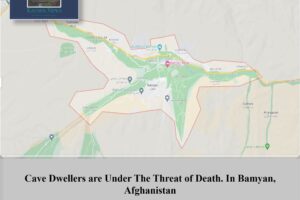By Kauser News Agency
The Afghan Coalition, a California-based long regarded as a leading service provider for Afghan refugees and immigrants in the United States, is now facing mounting criticism and scrutiny over allegations of fraud, waste, and abuse. Once considered a trusted institution for newly arrived Afghans, the organization has come under fire as community members, former employees, and watchdog groups raise serious questions about its finances, leadership, and transparency.
Sources close to the organization claim that federal and state funding, originally intended to provide resettlement services, housing assistance, and community support, has been misused. Concerns range from inflated administrative costs to questionable hiring practices that allegedly favored personal connections over qualified candidates. Several whistleblowers have also reported that resources earmarked for vulnerable Afghan evacuees were diverted, delayed, or outright neglected.
For years, Afghan refugees and asylum seekers in California have depended on nonprofits like the Afghan Coalition to help them navigate legal paperwork, secure housing, and access healthcare. Now, many in the Afghan diaspora feel betrayed. Social media has amplified these frustrations, with activists and ordinary Afghans demanding answers about why so many families are still struggling despite millions of dollars being allocated to aid organizations after the 2021 U.S. withdrawal from Afghanistan.
One community organizer described the situation bluntly:
“This is a betrayal. These funds were meant for families who lost everything. Instead, they’ve been trapped in bureaucratic waste and personal gain. We deserve accountability.”
The controversy has caught the attention of local officials and federal oversight bodies. Calls are growing for an official audit of the Afghan Coalition’s finances, with demands to ensure taxpayer money and federal refugee funding are being properly managed. Lawmakers are under pressure to intervene, as the issue has now become a test case for how Afghan evacuees are being treated by institutions claiming to represent them.
The timing of this scandal is significant. Three years after the fall of Kabul, many Afghans in the U.S. are still in limbo—facing legal uncertainty, housing insecurity, and mental health crises. With public trust in refugee support organizations already fragile, revelations of fraud and waste could further erode confidence in the system meant to protect and uplift vulnerable populations.
Community leaders, journalists, and advocates are calling for greater transparency, stronger oversight, and the inclusion of Afghan voices in decision-making processes. The story of the Afghan Coalition’s alleged failures is not just about one nonprofit—it raises larger questions about how federal aid is managed, how accountability is enforced, and whether vulnerable refugee communities are truly being served.





